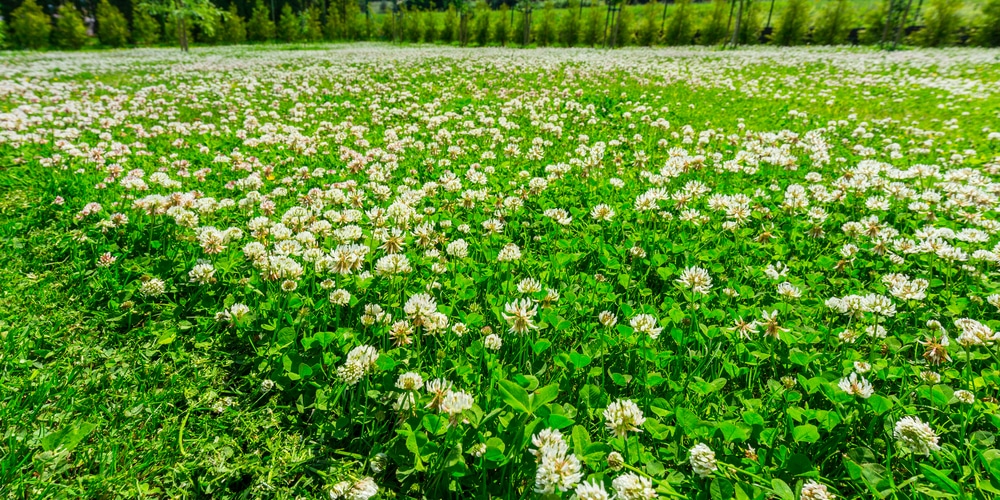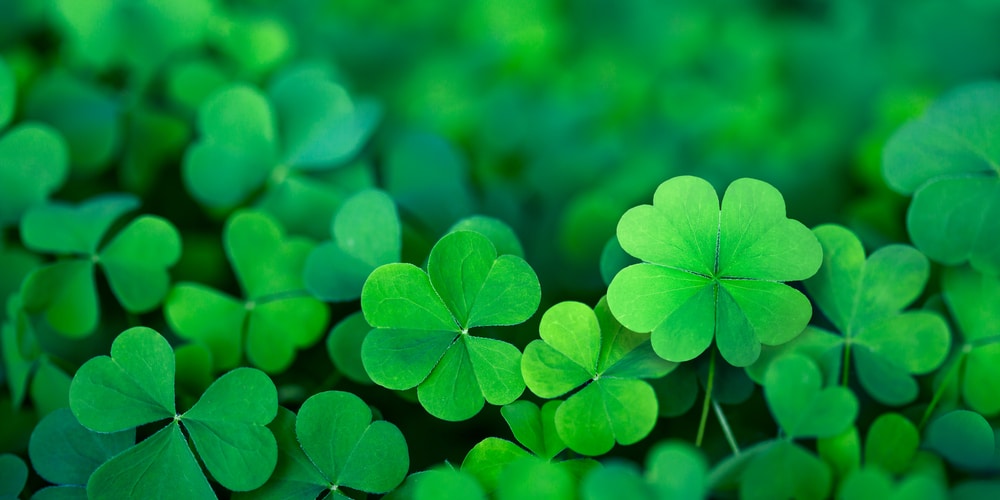Lawn owners may not appreciate seeing spots of white on their yards, even if it comes from a beneficial plant. Clover can grow in poor soil and often begins its invasion in bare soil patches where there’s very little nitrogen and competition. You may be wondering, how to get rid of white clover in your yard.
How to get rid of white clover
Try these 7 methods so you won’t get headaches dealing with an invasive weed.
Spray with a Homemade Solution
One of the best ways to get rid of white clover without destroying the lawn is by making a solution with ingredients you can easily find in a kitchen. All you need is a bottle sprayer, vinegar, water, and dish soap.
Mix equal parts water and vinegar and add a drop or two of liquid dish soap. Load it up in a sprayer and apply the solution liberally on your lawn. Make sure to cover all areas where you see white clover for this method to be effective.
It’s a natural home remedy and is non-toxic, to boot. However, you’ll need to avoid spraying the solution on plants as it can kill them as well. Also, you may need to reapply a few more times to kill all the weeds in your yard.
Introduce Nitrogen in the Soil
It’s a known fact that poor soil will often lead to an abundance of weeds, including white clover. These plants require little nitrogen to thrive, and they’ll be more than happy to fill up those blank spaces on your lawn.
That said, sometimes it’s as easy as feeding your grass regularly with nitrogen. You can go the organic route and put in some nitrogen-rich compost, or get a specially formulated grass fertilizer to infuse much-needed nutrients into the soil.
Follow the manufacturer’s instructions and don’t go overboard, or else your grass will get burned by too much nitrogen.
Hand Pull White Clover Out
Stay vigilant by keeping an eye out for white clovers that might appear on your lawn or garden. It’s easy to spot clover due to its unique three-leaf characteristic, and more so if the weed is producing little white flowers in the grass.
It’s recommended that you immediately pull out clovers the moment you spot them. Dig out the spot using a small spade or shovel and make sure you get the roots that are under the soil as well. It’s one way to get rid of clover without disturbing the surrounding plants or grass.
Mow at Three Inches High
Short and uniform green grass may look very appealing, but this invites other weeds to grow and compete for space and valuable resources. When you set the mower at three inches, you make your grass tall enough that it blocks out sunlight that encourages clover growth.
Do this the next time you mow the lawn and you’ll find less clover and weeds.
Fill Out Bald Patches
Bare patches of brown should be seeded with the grass of your choice. Lay down the seeds and cover with an inch or two of mulch. Afterward, make sure to water the area to promote germination, and soon the new grass will grow.
The new grass patch should be treated like the existing ones. Fertilize as needed and water when dry. Remember, a healthy lawn is a stronger lawn that can fight invaders such as white clover.
Remember to Water Properly
Contrary to popular belief, you don’t need to water your lawn every day. A wet turf invites weeds as the condition will likely germinate them, while a dried-out lawn weakens your existing grass and allows unwanted plants to take over.
Proper watering is the key to crowding out white clover. The recommended method is to irrigate once or twice weekly, or when the grass starts to look dry.
Kill Clover at the Source
Aside from pulling the weeds out, you can do several more things to kill unwanted clovers in your yard.
For instance, you can block sunlight and oxygen by putting plastic garbage bags, newspapers, or cardboard boxes on top of large patches of weeds. Corn gluten is a compound that’s widely available in garden centers and nurseries, and it can kill surrounding clovers in a pinch.
Alternatively, you can spray with an herbicide or organic weed killer.


